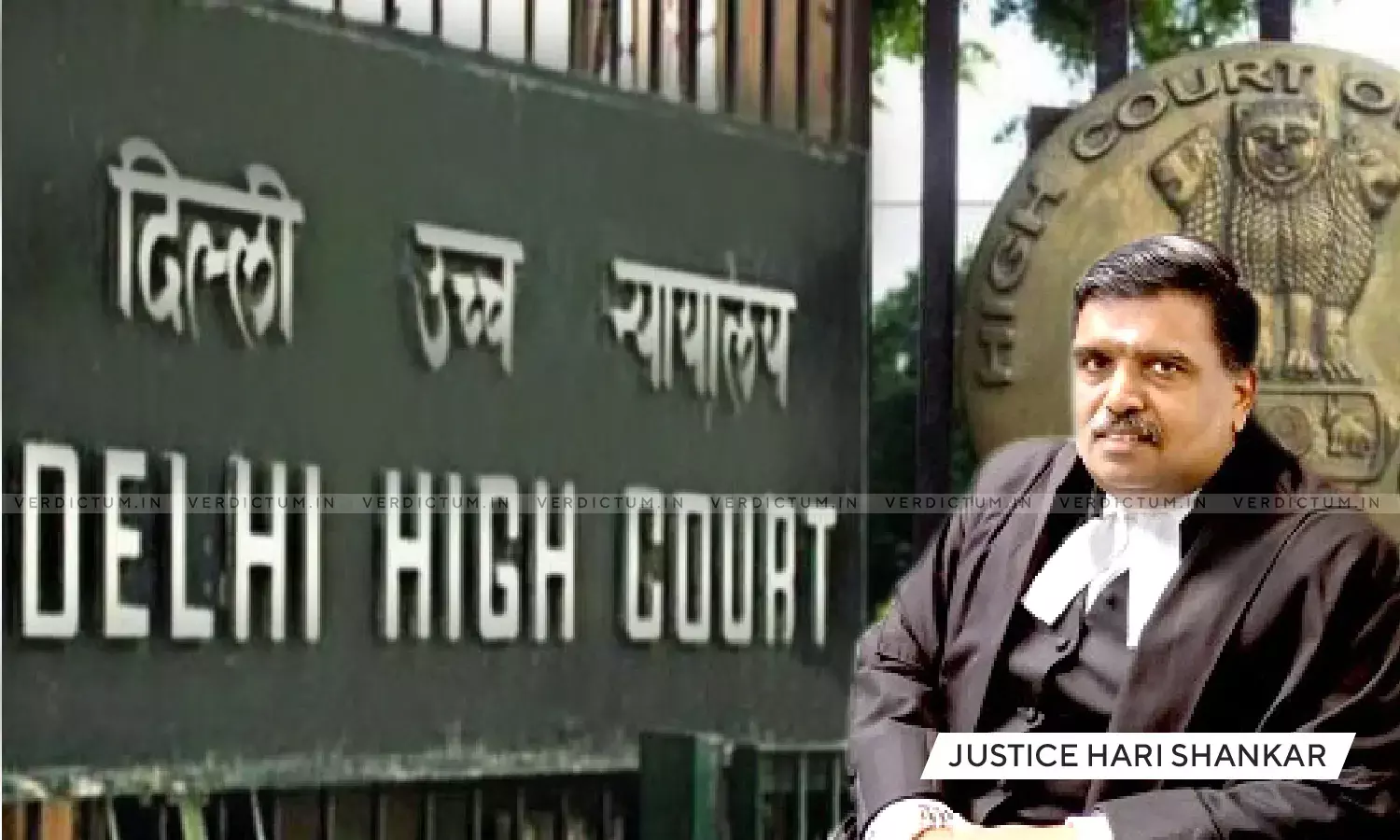Copyright Act Does Not Bar Conferment Of Right To Novelize Screenplay Of Cinematographic Film: Delhi HC

While clarifying that as the first owner of the copyright in the screenplay of the film Nayak, the right to novelize the screenplay vested in Satyajit Ray and said right will devolve on his son and any other person consequent on his demise, as per Section 18(1) of the Copyright Act, the Delhi High Court ruled that assignment of said right to novelize the screenplay of the film Nayak by Sandip Ray and the SPSRA, in favor of the Defendant is wholly in order and in accordance with the provisions of the Copyright Act, 1957.
A Single Judge Bench of Justice C. Hari Shankar observed that “Copyright in the screenplay of the film Nayak vested, therefore, consequent on the demise of Satyajit Ray, on his son Sandip Ray and the SPSRA. The conferment of the right to novelize the screenplay, by Sandip Ray and the SPSRA on the defendant, therefore, is wholly in order”.
“The plaintiff has no right whatsoever, in law, to injunct the defendant from novelizing the screenplay of the film Nayak”, added the Bench.
Advocate Hemant Daswani appeared for the Plaintiff, whereas Advocate Swathi Sukumar appeared for the Defendant.
The disputed film under question is ‘Nayak’ released in 1966 and regarded as one of the masterworks of Bharat Ratna Satyajit Ray, who was commissioned by R.D. Bansal, stated to be the Karta of the plaintiff-HUF, to write the screenplay of, and to direct, the film Nayak. Sometime in or around 2018, One Bhaskar Chattopadhyay novelized the screenplay of Nayak and the novel was published by the Defendant and released on May 05, 2018. The Plaintiff claiming ownership over copyright in the screenplay of the film, alleged that the novelization of the screenplay by Bhaskar Chattopadhyay, and the publication of the novel by the Defendant, constituted infringement of the Plaintiff’s copyright, within the meaning of Section 511 of the Copyright Act. This was opposed by the Defendant contending that the copyright in the screenplay vested in Satyajit Ray and consequent on his death the copyright stood vested in his son Sandip Ray and the Society for Preservation of Satyajit Ray Archives (SPSRA). Thus, the Defendant claimed to have obtained license from Sandip Ray and SPSRA to novelize the screenplay of the film.
After considering the submission and noting that the copyright subsisting in a cinematographic film is statutorily envisaged by Section 13(1)(b) of the Copyright Act, the High Court stated that the Plaintiff has clearly subsisting copyright in the film Nayak.
Referring to Section 321 of the Copyright (Amendment) Act, 1993, which states that copyright shall not subsist by virtue of the 1993 Amendment Act in any work in which the copyright did not subsist immediately before the commencement of the 1993 Amendment Act, the High Court explained that where the copyright in the concerned work had not expired prior to the coming into force of the 1993 Amendment Act, it would subsist, and the copyright holder would be entitled to the benefit of the amendment.
Finding that the copyright in the film in favour of the plaintiff was subsisting immediately prior to the 1993 Amendment Act, the High Court observed that the plaintiff cannot be denied the benefit of Section 2 of the 1993 Amendment Act, since the life of the copyright held by the Plaintiff in the film Nayak would therefore, be 60 years from 1967 which would expire only in 2027.
Therefore, the High Court rejected Defendant’s argument that the copyright of Plaintiff in the film Nayak has expired by virtue of Section 2 of the Copyright Act.
“Given the ambit of the expression literary work, there can, in my view, be little doubt about the fact that the screenplay of the film Nayak is unquestionably a literary work for the purpose of Section 13(1)(a) of the Copyright Act. Per sequitur, by operation of Section 13(4), the copyright in the screenplay, as a “literary work”, which stands vested by Section 13(1)(a), cannot be affected by the separate copyright in the cinematograph film itself, which, unquestionably, vests in the plaintiff as its producer”, added the Bench.
Hence, while concluding that as per Section 17 of the Copyright Act, Satyajit Ray as the author of the screenplay of the film Nayak, was the first owner of the copyright in the said film, the Bench rejected the contention that the Plaintiff is the owner of the copyright in the screenplay in the film Nayak.
Referring to Section 14 of the Copyright Act which describes about the rights which vest in the owner of the copyright, the Bench added that “novelization of a screenplay does not involve either abridgement of the screenplay, or converting it into a version in which the story or action is conveyed wholly or mainly by means of pictures in a form suitable for reproduction in a book, novelization is not adaptation‖ as defined in Section 2(a)”.
However, the Bench clarified that novelization would certainly involve reproduction of the screenplay in a material form, and partly dismissed the prayer sought in the plaint.
Cause Title: RDB AND CO. HUF v. HARPERCOLLINS PUBLISHERS INDIA PRIVATE LIMITED [Neutral Citation Number: 2023: DHC: 3551]
Click here to read/download Judgment

